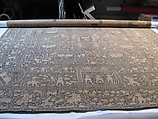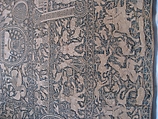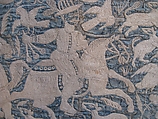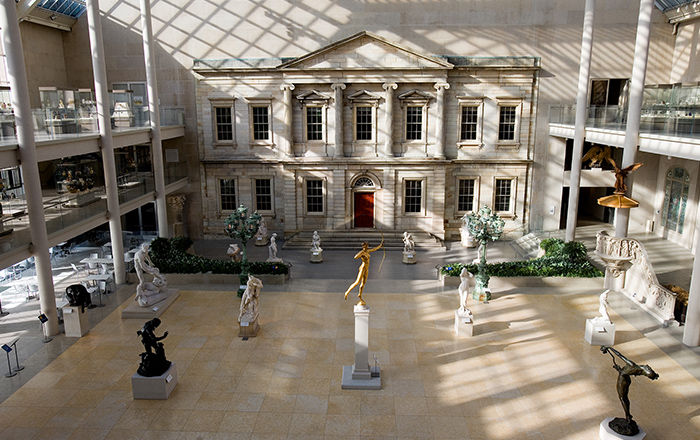Returned to lender The Met accepts temporary loans of art both for short-term exhibitions and for long-term display in its galleries.
Hanging with Triumphal Arch
Indian (Bengal), for the Portuguese market
Not on view
The imagery on this magnificent Indian embroidery is uniquely charged with contemporary European political conflict. The source of the arch is a 1622 Portuguese book that documents temporary structures created for Spain’s Philip III’s triumphal entry into Lisbon in 1619, when both Spain and Portugal were under his rule. Lisbon’s Flemish merchants erected the so-called Flamand arch. Atop stands Discordia—goddess of strife—between the coat of arms of the Dutch provinces, then struggling to gain independence from Spain. Also featured are portraits of Portuguese kings with motifs typical of Bengali exports—Christian subjects, hunting scenes, and mythological figures such as mermaids.
Due to rights restrictions, this image cannot be enlarged, viewed at full screen, or downloaded.
This artwork is meant to be viewed from right to left. Scroll left to view more.





